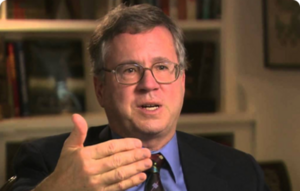A Word from the Founder and Director
The universe is more mysterious than either science and religion can ever fully disclose, and the urgencies of humankind and the natural environment demand an honest interaction between the discoveries of nature, the empowerment afforded us by appropriate technology, the inherent value of the environment, and the demand that we commit ourselves to a future in which all species can flourish. We can no longer afford the stalemate of past centuries between theology and science, for this leaves nature Godless and religion worldless. When this happens, our culture, hungering after science for something to fill the void of its lost spiritual resources, is easy prey to New Age illusions wrapped in science-sounding language — the 'cosmic self-realization movement' and the 'wow of physics' — while our 'denatured' religion, attempting to correct social wrong and to provide meaning and support for life's journey, is incapable of making its moral claims persuasive or its spiritual comfort effective because its cognitive claims are not credible. Nor can we allow science and religion to be seen as adversaries, for they will be locked in a conflict of mutual conquest, such as "creation science" which costs religion its credibility or "scientific materialism" which costs science its innocence.
Instead we at CTNS pursue a creative interaction between theology and science — an interaction which honors and respects the integrity of each partner, an interaction in which convictions are held self-critically and honest engagement is prized, an interaction which focuses specifically on the most rigorous theories of mainstream natural science and the most central positions of mainline theology, an interaction which aims at serving the broader concerns of the global human and ecological communities. This, then, is the mission of CTNS.
Robert John Russell
Founder and Director, CTNS
Ian G. Barbour Professor of Theology and Science, GTU
For a detailed discussion, see Dr. Robert Russell's "Bridging Science and Religion: Why it Must Be Done." Though Dr. Russell wrote this text in 1981 we believe it is still a valuable brief overview of the reasons for the founding of CTNS --- reasons which are remarkably compelling even today.
Introductory Resources
If you are new to the science and religion dialogue, here are some outstanding introductory books to get you started. For additional resources, see the CTNS Brief Bibliography.
When Science Meets Religion. Ian G. Barbour. San Francisco: Harper SanFrancisco, 2000.
Ian Barbour, whose work in the 1950s and 1960s served as a catalyst for the current dialogue between science and theology, presents four ways for understanding the relationship between science and religion: conflict, independence, dialogue, and integration. Barbour then surveys areas of scientific and theological concern using this typology, including quantum physics, evolution, genetics, divine action, astronomy, and creation. Buy now.
Bridging Science and Religion. Edited by Ted Peters and Gaymon Bennett. Minneapolis, Minnesota: Fortress Press, 2003.
This extraordinary volume models a fruitful interaction between the profound discoveries of the natural sciences and the venerable and living wisdoms of the world's major religions. Bridging Science and Religion brings together distinguished contributors to the sciences, comparative philosophy, and religious studies to address the most important current questions in the field. It is an ideal starting point for novices, yet has much to offer academics, professionals, and students. Part 1 establishes a working methodology for bridge-building between scientific and religious approaches to reality. Part 2 lays down the challenge to current theological and ethical positions from genetics, neuroscience, natural law, and evolutionary biology. Part 3 offers a religious response to modern science from scholars working out of Islamic, Jewish, Hindu, Orthodox, Latin American Catholic, and Chinese contexts. Showcasing attitudes toward science from outside the West and an inclusive and comparative perspective, Bridging Science and Religion brings a new and timely dimension to this burgeoning field. Buy now.
Cosmology: From Alpha to Omega. Robert John Russell. Minneapolis, Minnesota: Fortress Press, 2008.
In ten provocative chapters Russell explores such topics as: The Contingency of Creation and Big Bang Cosmology; Does 'The God Who Acts' Really Act?: New Approaches to Divine Action In Light of Contemporary Science; Entropy and Evil: The Role of Thermodynamics in the Ambiguity of Good and Evil in Nature; The Transfiguration of the Cosmos: A Fresh Exploration of the Symbol of a Cosmic Christ; and more. Buy now.

